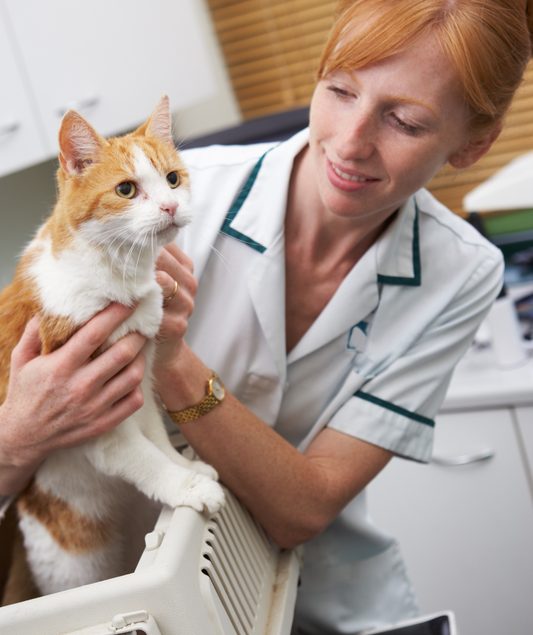The Ultimate Checklist For Before Leaving Your Cat at a Cattery
We completely understand that leaving your beloved feline friend at a cattery can feel overwhelming, especially if it’s your first time.
Those worried thoughts are entirely natural.
Will they be happy?
Will they eat properly?
What if they miss me terribly?
The good news is that with proper preparation and a comprehensive checklist, you can transform these stressful experiences into a calm, safe, and positive one for both you and your cat.
When you’re planning a weekend getaway or a longer holiday, being well-prepared is the secret to peace of mind.
This practical guide provides UK cat owners with everything needed to ensure their furry companion receives the best possible care whilst you’re away.
Why is it Essential to Prepare Your Cat Before Leaving them at the Cattery?
Preparing your cat for a cattery experience is about creating the foundation for a successful stay. When cats encounter familiar routines, scents, and comforts in an unfamiliar environment, their stress levels drop significantly. This preparation directly impacts their appetite, sleep patterns, and overall well-being during the boarding process.
From a practical standpoint, proper preparation ensures compliance with cattery requirements and UK regulations.
Every licensed cattery must adhere to strict health and safety standards, including vaccination protocols, parasite treatments, and documentation requirements. Meeting these standards protects all cats in the facility from potential health risks.
Well-prepared information also builds crucial trust with cattery staff. When you provide detailed care notes about feeding preferences, medication schedules, and behavioural quirks, staff can deliver truly personalised attention.
Perhaps most importantly, thorough preparation avoids heartbreaking last-minute disappointments. Nothing’s worse than arriving at a cattery only to discover missing vaccination certificates or untreated flea infestations that prevent admission. A systematic approach eliminates these scenarios.
What to Do Before You Leave Home
Veterinary Care
UK cattery vaccination requirements are non-negotiable, and for a reason. Your cat must be fully vaccinated against Cat Flu and Feline Enteritis and hold up-to-date certificates.
These vaccines must be administered at least 14 days before the cattery stay to ensure full immunity development.
Flea and Worm Treatment before Cattery
Even indoor cats can harbour parasites, and the close quarters of cattery accommodation mean things can spread rapidly.
Treat your cat with veterinary-grade flea and worm products 24-48 hours before their stay.
For elderly cats or those with medical conditions, schedule a pre-boarding health check. This visit allows your vet to confirm your cat’s fitness for boarding and update any medication requirements.
Documentation
Vaccination certificates form the top priority of the cattery boarding checklist documentation.
Ensure certificates clearly show vaccination dates, product names, and batch numbers. Many catteries now accept digital certificates, but always confirm their preferred format in advance.
Prepare a comprehensive information sheet including your vet’s contact details, your cat’s microchip number, and pet insurance information.
Consider creating a simple “cat profile” document covering personality traits, favourite hiding spots, and any anxiety triggers. This information proves invaluable for staff managing multiple cats with varying needs.
Information for Staff
Detailed care instructions represent one of the most valuable cat boarding essentials. Create written notes covering feeding schedules, portion sizes, and any dietary restrictions or preferences.
Include specific meal times if your cat follows a strict routine.
List each medication with precise dosage instructions, administration times, and any special requirements (with food, on an empty stomach, etc.). Include contact details for your prescribing vet in case staff have questions.
Carrier Acclimation
Transform the carrier from a “vet visit only” item into a familiar, comfortable space. Place soft bedding inside and position it as permanent furniture in your home. Feed treats or even meals inside the carrier to create positive associations rather than stress responses.
Visit the Cattery in Advance
Observe cleanliness standards, ventilation systems, and safety measures like secure fencing and double-door systems that prevent escapes.
Watch staff interactions with resident cats – Do cats appear relaxed and well-cared for?
Ask about their daily routines, cleaning protocols, and emergency procedures. Quality catteries welcome these questions and provide detailed, confident answers.
What to Bring When Leaving Your Cat at a Cattery?
| Item | Why It’s Important | Notes |
| Vaccination Certificate | Proof of up-to-date cat flu & enteritis vaccinations | Administered at least 14 days before your cat’s stay |
| Food | Familiar diet prevents tummy upsets | Hunters Lodge offers an extensive feline menu |
| Medication | Keeps cats on routine treatment | Administered at no extra cost |
| Comfort Items | Familiar blanket, bed, or toys help reduce stress | You can bring extras alongside our luxury bedding |
| Personal Item | Clothing with owner’s scent offers reassurance | Optional, recommended for anxious cats |
| Grooming Tools | For cats needing regular brushing | Staff can assist if instructed |
| Carrier | Safe transport to/from cattery | Required |
Do catteries allow personal food and litter?
Most certainly, we encourage bringing your cat’s usual food to maintain digestive consistency. Sudden dietary changes often cause stomach upsets that make boarding unnecessarily stressful. If your cat follows a specific diet or has special nutritional needs, our team can follow your feeding instructions.
Comfort items work wonders for settling anxious cats. A favourite blanket carrying home scents, a beloved toy, or even an unwashed item of your clothing can provide tremendous reassurance during the first few days.
Communication with Cattery Staff
To answer the question – How to reduce cat stress before the cattery stay, in simple terms, it begins with honest communication about your cat’s personality and needs.
Staff can’t provide appropriate care if they don’t understand whether your cat is naturally confident or requires gentle encouragement.
Provide detailed feeding instructions for your cats, including exact portion sizes and timing preferences. Note any foods that cause digestive upset and any treats that work well for encouraging shy cats to eat.
Establish communication preferences for what happens on cattery drop-off day and throughout the stay.
Things to Do on the Day of Drop-Off
Cats are remarkably intuitive about their owners’ emotional states. Remaining calm and positive during drop-off helps your cat feel more secure about the transition. Pack everything the night before to avoid rushed, stressful preparations on departure day.
Allow generous time for the check-in process. Quality catteries conduct thorough admission procedures, reviewing paperwork, discussing care requirements, and settling your cat into their accommodation. Rushing this process benefits nobody.
Key Takeaways
- Successful cattery experiences depend entirely on thorough preparation.
- Vaccinations, flea and worm treatments, and proper documentation aren’t optional, they’re essential requirements that protect all cats in the facility.
- Comfort items and maintaining familiar routines significantly reduce boarding stress.
- The investment in preparation pays dividends in your cat’s wellbeing and your peace of mind.
- Written care instructions enable staff to provide personalised attention that mirrors home care as closely as possible.
- The more information you provide, the better care your cat receives.
Book Your Cat’s Comfortable Stay at Hunters Lodge Cattery
At Hunters Lodge Cattery, we understand that choosing the right boarding facility represents a significant decision for devoted cat owners. As a family-run cattery in the Northampton and Milton Keynes area, we’ve built our reputation on providing dedicated one-to-one care that treats every feline guest as a cherished family member.
Our unique approach includes tailored diets and medication support at no extra cost, ensuring your cat’s routine remains as consistent as possible.
Each cat enjoys heated, comfortable accommodation in our peaceful countryside setting in Stoke Goldington, just a short drive from Milton Keynes and Northampton.
How to Book
- Check Availability: Visit our Bookings Page for current availability and pricing
- Pay 50% Deposit or Full Payment: Secure your booking quickly through our online system – Click Here to Register
- Submit Records: Provide vaccination certificates at least 14 days before your planned stay
- Drop-Off Day: Simply bring your prepared cat, and we’ll handle everything else with professional care
Visit our gallery, which showcases our spacious facilities and happy feline guests. For personalised advice about your cat’s specific needs, call 01604 870330 to speak with our experienced, friendly team.
Book your cat’s stay at Hunters Lodge today for complete peace of mind during your time away.
FAQs
1. What vaccinations are required for a cattery?
Most UK catteries require current vaccinations against cat flu (feline calicivirus and herpesvirus) and feline enteritis (panleukopenia). Many also require feline leukaemia vaccination. All vaccines must be administered at least 14 days before boarding to ensure full immunity.
2. Can I bring my own food and litter to the cattery?
Yes, most reputable catteries actively encourage bringing your cat’s usual food to prevent digestive upset from sudden dietary changes. Many also accommodate specific litter preferences; always discuss these requirements during booking to ensure proper preparation.
3. What should I do if my cat is anxious or elderly?
Bring familiar comfort items, consider synthetic pheromone treatments, and provide detailed care instructions for staff. For extremely anxious cats, consider arranging a shorter trial stay before longer boarding periods to help them acclimate gradually.
4. How long can a cat stay in a cattery?
With proper preparation and quality care, cats can stay anywhere from a few days to several weeks. Most cats adapt well to boarding routines, and many actually enjoy the attention and stimulation provided by professional cattery environments.

